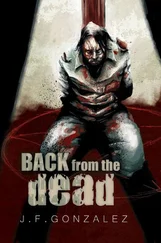He emerges in the sunshine on the alvar southwest of the village, without being discovered.
Out here the danger is past; Nils can find his way here better than anyone, moving rapidly and easily across the grass. He can spot anybody before they see him. He walks almost directly toward the sun, giving a wide berth to the place where he met the Germans. He doesn’t want to see if the bodies are still there or have been carted off. He doesn’t want to think about them, because they are the ones who are forcing him to leave his mother.
The dead soldiers are forcing him to go away, for a while.
“You need to keep away,” his mother said the previous evening. “Take the train to Borgholm from Marnäs, then take the ferry over to Småland. Uncle August will meet you in Kalmar, and you must do what he tells you — and take your cap off when you’re thanking him. You’re not to speak to anyone else, and you’re not to come back to Öland until all this has settled down. But it will be fine, Nils, if we just wait.”
Suddenly he thinks he hears a muted shout behind him, and he stops. But he hears nothing more. Nils moves more cautiously through the juniper bushes, but he can’t go too slowly. The train won’t wait.
After a couple of kilometers he reaches the graveled main road. A cart is approaching from the south, and he quickly hurries across the road and hides in the ditch. But the cart is being pulled by a lone horse, its head drooping, and Nils is far away from the road by the time it draws level. He is roughly in the middle of the island now, and he thinks about what he read in the newspaper: it was along this road that the German soldiers are presumed to have sneaked a week or so earlier, when their boat suffered engine failure and drifted ashore to the south of Marnäs.
He’s not going to think about them, but for a moment he remembers the little box of gemstones he took from the soldiers, and sees himself burying it deep beneath the memorial cairn. In recent days while he and his mother have mostly stayed in the house, he has almost told her about his spoils of war several times, but something has made him keep silent. He will tell her, he will dig them up and show his mother the treasure, but he intends to leave all that until he comes home again.
After another twenty minutes’ walking, the gravel-covered railway track appears ahead of him. It’s the narrow-gauge track between Böda and Borgholm, and he turns north and walks alongside it toward the station in Marnäs. The two-story wooden station house stands alone just to the south of the village. It’s a post office and railway station combined, and he catches sight of the house just as the two tracks divide and become four just ahead of him.
The track is empty. His train hasn’t arrived yet.
Nils has been to Borgholm and back three times before, and knows how a traveler should behave. He walks into the station, where everything is quiet, goes over to the window, and buys a single ticket to town.
The miserable-faced woman with glasses behind the iron grille looks up at him, then hastily looks down at the desk as she issues the ticket. The steel nib of her pen rasps across the paper.
Nils waits anxiously, feeling as if he’s being watched, and looks around. Half a dozen people, mostly men in neatly buttoned suits, are sitting on the wooden benches in the waiting room. They are waiting alone or in groups, and several have black leather bags with them. Nils is the only one with both a rucksack and a suitcase.
“There you are. Last carriage, number three.”
Nils takes the ticket, pays, and walks out onto the platform, his rucksack over his shoulder and his suitcase in his hand. After just a few minutes he hears the screech of a train whistle, and the train chugs slowly into the station with its three red-painted wooden carriages.
There is an enormous power in the black, puffing steam engine as it slows down in front of the station house, its brakes squealing.
Nils climbs aboard the last carriage. The stationmaster calls out something behind him; the doors of the station house open and the other travelers emerge.
Nils turns around on the top step and stares silently at them; they choose to go toward the other carriages.
The compartment is dark and completely empty. Nils lifts his suitcase onto the luggage rack and sits down on a leather-covered window seat with a view over the alvar, his rucksack beside him. The train jolts, heavy and steady, and begins to move. Nils closes his eyes and breathes out.
The train stops again, with a dull hiss. The carriages remain still.
Nils opens his eyes, waits. He’s still alone in the carriage.
A minute passes, then two. Is something wrong?
Somebody shouts something outside, and at last he feels the train begin to move again. It slowly picks up speed, and Nils sees the station house slip past and disappear behind him. Cool air blows into the carriage through gaps in the windows; it feels like a sea breeze on the shore at Stenvik.
Nils’s shoulders slowly drop. He places a hand on his rucksack, opens it, and leans back in his seat. The train’s speed is increasing all the time. The whistle screams.
Suddenly the door of his compartment opens.
Nils turns his head.
A well-built man wearing a black police uniform with shiny buttons and a police cap walks in. He looks Nils straight in the eye.
“Nils Kant from Stenvik,” says the man, his expression serious.
It isn’t a question, but Nils nods automatically.
He’s sitting there as if he were nailed to the seat as the train races across the alvar. The greenish brown landscape outside the window, blue sky. Nils wants to stop the train and jump off, he wants to get back out onto the alvar. But the train is moving swiftly now, the wheels pounding along the track, the wind howling.
“Good.”
The man in the uniform sits down heavily on the seat diagonally opposite Nils, so close that their knees are almost touching. The man straightens his coat, which is buttoned up despite the heat. His forehead is shiny with sweat beneath the brim of his cap. Nils recognizes him, vaguely. Henriksson. He’s the district police superintendent in Marnäs.
“Nils,” says Henriksson, as if they knew each other, “are you going to Borgholm?”
Nils nods slowly.
“Are you going to visit someone down there?” asks Henriksson.
Nils shakes his head.
“What are you going to do, then?”
Nils doesn’t answer.
The police officer turns his head and looks out of the window.
“Anyway, we can travel together,” he says, “and we can have a little chat in the meantime.”
Nils says nothing.
The police officer goes on:
“When they phoned and told me you were here, I asked them to hold the train for a few minutes so that I could come along and join you.” He turns his gaze back to Nils almost reluctantly. “I’d really like to talk to you, you see, about all those long walks on the alvar...”
The train begins to slow down again at one of the stations between Marnäs and Borgholm. A little cottage surrounded by apple trees slips past Nils’s window. He imagines he can smell the aroma of pancakes through the window; his mother had made him fresh pancakes with sugar the previous evening.
Nils looks at the policeman.
“The alvar... there’s nothing to talk about,” he says.
“I can’t really agree with you there.” The police officer takes a handkerchief out of his pocket. “I think we do need to talk about it, Nils, and many other people agree with me. The truth will always come out.”
The policeman holds Nils’s gaze as he slowly wipes the sweat from his face. Then he leans forward.
“Several people from Stenvik have got in touch with us over the past few days. They’ve said that if we want to know who’s been shooting out on the alvar with a shotgun, we ought to talk to you, Nils.”
Читать дальше












